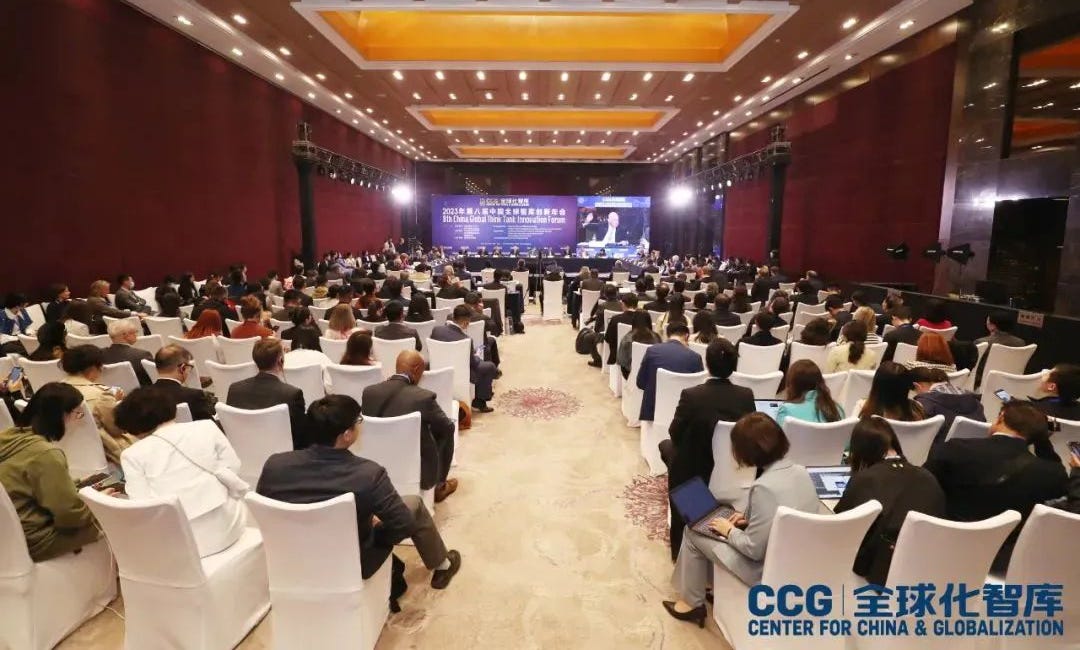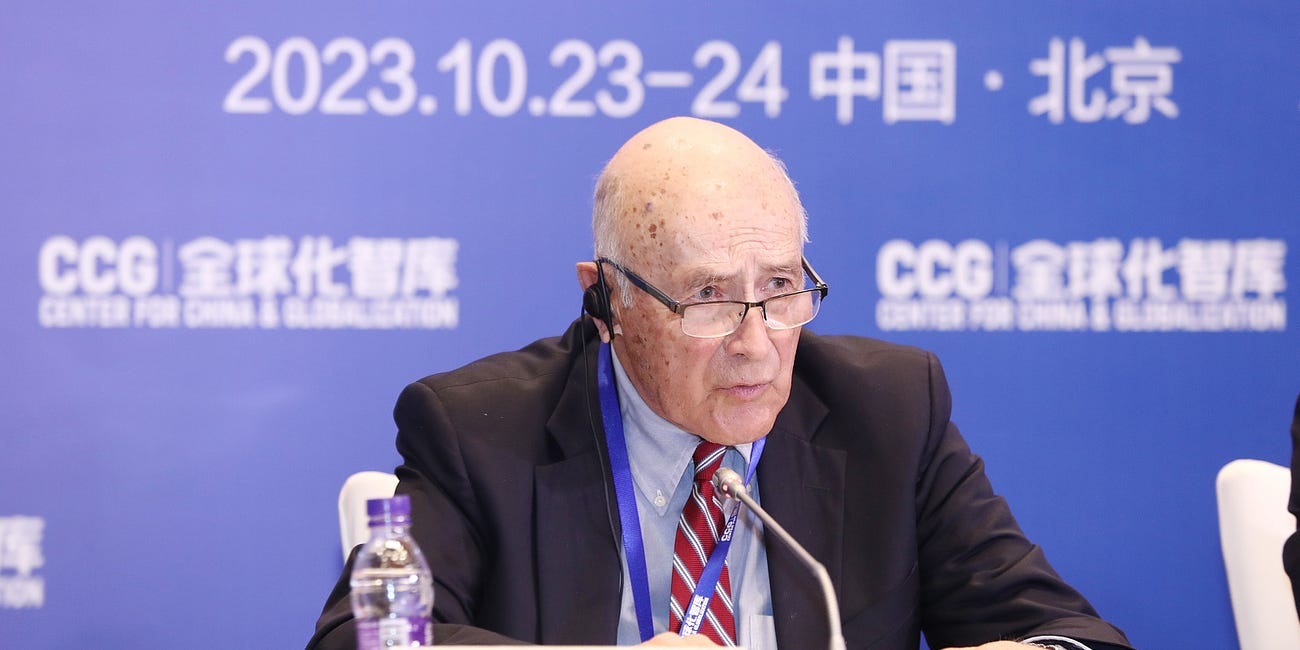James Laurenceson on Australia-China relations
Hear the Australia-China Relations Institute (ACRI) Director's comment at a CCG event. Australian Prime Minister Anthony Albanese just landed in Shanghai.
Anthony Albanese, Prime Minister of Australia, just arrived in Shanghai, China tonight for an official visit to the country from November 4 to 7. Before departing Australia, the first Australian leader to visit China in 7 years said the visit would be “very positive” for bilateral relations, which tumbled and then gradually recovered.
We are sharing with you a recent Australian intervention at the 8th China Global Think Tank Innovation Forum organized by the Center for China and Globalization (CCG) in Beijing on Monday, October 23, 2023. It was made by Professor James Laurenceson, Director of the Australia-China Relations Institute (ACRI) at the University of Technology Sydney, Australia’s first and only research institute devoted to studying the relationship of the two countries.
Thanks, Henry [Huiyao Wang], and to CCG for the invitation. Let me share with you a couple of thoughts on Australian attitudes toward the state and the future of the regional order. Perhaps it's somewhat representative of some other regional middle powers.
Australia has a reputation, rightly, as a staunch US security ally beyond the bilateral ANZUS Treaty. We are enthusiastic participants in arrangements such as the Quad and now AUKUS. This can sometimes lead to pronouncements that Australia is just a US lapdog that lacks an independent foreign policy. But it's a bit more complicated than that. It's certainly true that Australian foreign policy is generally sympathetic to US positions, but that's mostly because Canberra assesses that these US positions align with Australia's own assessments of its national interest. Australia also has positions that are distinct.
Here are three data points that I think are perhaps not fully appreciated in both Beijing and Washington as well.
The first, in April, Australia's foreign minister plainly stated that the era of US unipolarity in the region is over. We now exist, she said, in a region that is multipolar. Australia certainly supports an ongoing US prominent role in the region. But Canberra's goal is not to preserve US primacy, but rather to ensure there's a strategic balance in which no single country dominates. In other words, Canberra accepts that the US role in the region must change. I'll leave to my American colleagues to inform us whether Washington also accepts this.
The second data point. Last November, Australia's trade minister described US export controls targeting China, devised by the Biden administration, as "draconian." A few years ago, the previous Australian government also made clear that it did not support the unilateral tariffs imposed by the Trump administration on China. Now that's not just because Australia's own trade with China continues to set new record highs every month. It's because for Australia, talk of an international rules-based order overseen by the World Trade Organization isn't just a propaganda talking point. It delivers results. When Beijing disrupted a variety of Australian exports in 2020, it wasn't Washington or Canberra, or other geopolitical friends that protected Australia's economy. In fact, trade data clearly shows that the companies snapping up most lost Australian sales to China were, in fact, American ones. What did protect the Australian economy was access to open and competitive global markets underpinned by the multilateral trading system. When Chinese importers stopped buying Australian coal, copper, cotton, and more, those markets quickly redirected Australian exports elsewhere, at low cost. Australia and China's engagements with the WTO Disputes Settlements process have provided an independent, neutral forum that, in August, led to the removal of tariffs that Beijing had placed on Australian barley. And just this week, we learned a similar process is now unfolding for Chinese tariffs on Australian wine.
A final data point. Australia’s Foreign Minister says that our national interest lies in being at every table where regional economic integration is being discussed, and that includes with China. She says, this is important. This is important. Canberra sees deeper regional economic integration as delivering not only greater economic prosperity but also greater stability and security. Again, I'll leave it to my American colleagues to brief us on whether this view is also shared in Washington. Thank you.
Professor James Laurenceson is an economist, educator, analyst and researcher. He conducts research that seeks to inform Australia’s engagement with China. His research has been published in leading scholarly journals including China Economic Review, China Economic Journal, and Australian Journal of International Affairs. Professor Laurenceson also provides regular commentary on contemporary developments in China’s economy and the Australia-China relationship. His opinion articles have appeared in The Australian Financial Review, The Australian, The Sydney Morning Herald, and South China Morning Post, among many other publications. He has previously held academic appointments at the University of Queensland (Australia), Shandong University (China), and Shimonoseki City University (Japan).
For more from the 8th China Global Think Tank Innovation Forum
[includes the names of all the participants.]
CCG will make transcripts of all public sessions available in English. The full video documentation has been uploaded to YouTube and is also available in China on CCG’s WeChat blog after being broadcast online.










